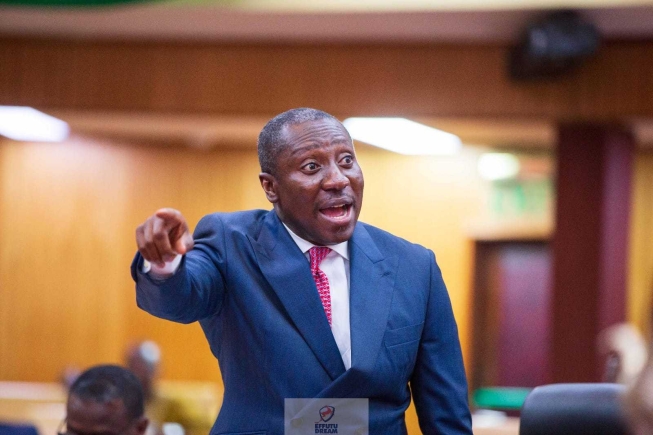By Nelson Ativor
Effutu Member of Parliament and Minority Leader, Alexander Kwamena Afenyo-Markin, has expressed his strong support for two key initiatives of the NDC government—the 24-Hour Economy and the Big Push infrastructure program. He lauded these policies as game-changers with the potential to revolutionize Ghana’s economy and provide sustainable opportunities for the youth.
In a show of unity across party lines, Afenyo-Markin emphasized the importance of supporting beneficial policies regardless of political affiliation. Speaking about the government’s rollout of the Reset Agenda, he highlighted that as an opposition leader, he recognizes the necessity of endorsing initiatives that can bring positive change to the nation.
Afenyo-Markin explained his endorsement by pointing to the positive impact these initiatives could have, especially for Ghana’s youth. He emphasized the need for effective implementation and expressed optimism that the 24-Hour Economy could spur job creation in the private sector.
The 24-Hour Economy forms a crucial part of President John Dramani Mahama’s ambitious Reset Agenda. It aims to transition Ghana from an import-reliant economy to a self-sufficient and globally competitive one by boosting productivity, creating jobs, and ensuring food security.
Additionally, the Minority Leader welcomed the Big Push infrastructure drive, recognizing the vital role that improved roads play in providing opportunities for young people. He commended the government’s commitment to investing in major infrastructure projects that will enhance economic growth and connectivity across the country.
Afenyo-Markin’s bipartisan stance signifies a departure from traditional political divisions and underscores the need for collaborative efforts in tackling Ghana’s economic challenges. By showing support for the 24-Hour Economy and the Big Push, he echoes the calls from various sectors for progressive reforms to address the structural weaknesses in the economy.
The Effutu lawmaker’s endorsement not only signals political unity but also emphasizes the importance of effective implementation to ensure the success of these initiatives. It is hoped that such bipartisan support will enhance the longevity and impact of these policies, paving the way for a more cooperative approach to national development.
As Ghana moves towards a more inclusive and resilient future, the real test will lie in the government’s ability to deliver on its promises through the successful execution of the 24-Hour Economy and the Big Push agenda.


